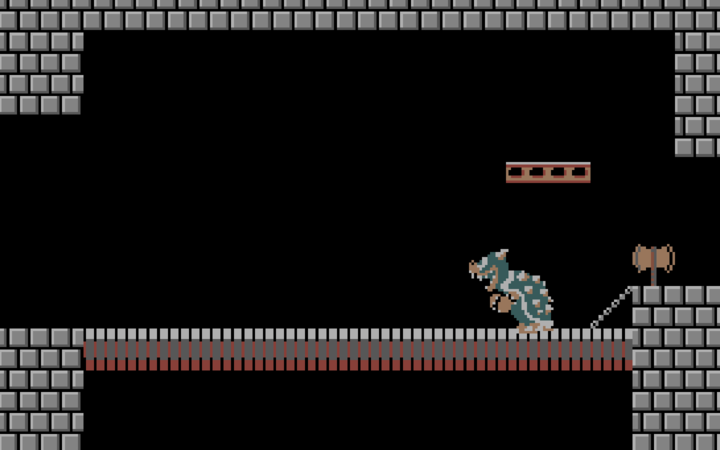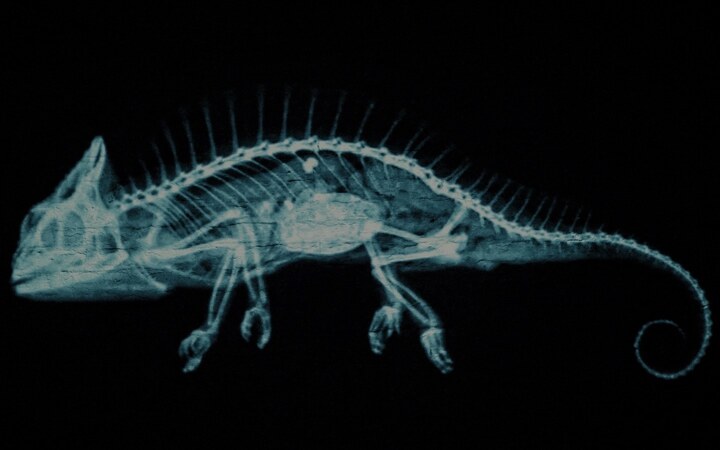-
That you can apparently learn to meditate your way into a state of profound relaxation and bliss and pleasure on par with heroin or orgasm, which was certainly not on my bingo card, which is good because bliss is good, and also because it’s cool that there can still be huge updates to your world model just sitting there ignored, and also because people who do this don’t seem to get addicted and meditate until they starve to death which maybe augurs well for what happens after we invent wireheading.
-
That of all the Hedgehog signaling pathways for embryonic cells, the best studied is the Sonic Hedgehog homologue signaling pathway.
-
That your brain has a kind of built-in drudgery automation module that gradually takes over as you repeat a learned skill and as I write this all I consciously do is think about high-level concepts and then my fingers seem to autonomously render those concepts into words, which is good because woah and because drudgery is bad and because it maybe gives a hint of what it might feel like to work with new artificial modules.
-
That wood.
-
That while we now have microplastics in all the food we eat and all the water we drink and all the air we breathe and this is decidedly non-awesome, current science suggests that the actual health impact from consuming most types of plastic might well be essentially zero.
-
That while heavy metals are definitely bad for you, most fruits and vegetables apparently don’t take up much heavy metal from soil and some take up basically none, so theoretically if you grow tomatoes in lead-drenched soil the actual danger is in accidentally eating or inhaling bits of dirt, not in eating the tomatoes, though personally I wouldn’t risk it and if you are gardening in an urban area consider getting your soil tested, many public colleges provide this service at low cost.
-
That running is good for you but unfortunately destroys your knees except actually maybe not, the (weak) evidence we have now suggests running strengthens your knees, which is good because we have enough tradeoffs to think about.
-
That paper—the ultimate tool for human thought—is available in infinite variants at prices not much different from zero.
-
That heat rises and cold sinks so campfires heat people sitting around them and open-topped freezers don’t waste that much energy, and given how gravity pulls stuff down and cold is usually more expensive than heat, I guess it would be worse if things were the other way around?
-
That life expectancy in most places is going up among all age groups, meaning however old you are now you’re expected to survive longer than equally old people at any time in the past, which is good because survival is good, although we’re only gaining like 0.07 years of life expectancy per year which is 14× less than escape velocity, let’s move it people.
-
That “Thought to be 405 years old, Ming was later determined to be 507 years old, although the clam had previously been killed to make this determination.”
-
That maternal mortality in rich countries is 98% lower than it was 100 years ago, and maternal mortality in the world is 50% lower than it was 40 years ago.
-
That humor, the most unexpected emotion.
-
That as you gaze into space at night, in fact Earth’s atmosphere is 100% opaque to most wavelengths, with various parts blocked by water vapor, carbon dioxide, oxygen, ozone, methane, nitrogen oxides, and Rayleigh scattering, but there happens to be a window of near-transparency between 0.3 μm and 0.7 μm which happens to be where the Sun’s emissions peak, meaning we get most of the energy from our local fusion power plant delivered conveniently to the surface while also being protected from the shorter/higher-energy radiation flying around out in space.
-
That all matter puts out thermal emissions and on Earth these emissions start at around 5 μm, but what do you know, there happens to be another gap in the Earth’s absorption from around 8 to 14 μm so much of the Earth’s thermal emissions escape out into space, which is good because it balances the incoming and outgoing radiation instead of the Earth just heating up until the oceans boil off and everything dies.
-
That there also happens to be another gap from around 0.3 mm and 30 m so we can easily send radio waves to and from space, thankfully.
-
That the fibers in the stems of flax plants are long and hollow so water quickly spreads through them so linen fabric is wicking but also allows airflow and linen clothes and sheets let your body more easily regulate its temperature and all the wool hipsters should should give linen another look, besides being cheaper, flax plants also presumably have lower sentience than sheep.
-
That pamplemousse, the best word.
-
That boredom, that if you think you aren’t creative, I promise that yes you are creative, try getting bored.
-
That chemical weapons are bad, even by the standards of war where the goal is to kill and destroy, chemical weapons are still bad because they inflict much of their harm later, years after the battle, meaning more suffering per “unit of war”, but fortunately with modern armies known chemical weapons are less effective than conventional munitions and so they’re rarely used, although we should maybe stop patting ourselves on the back about our amazing moral triumph.
-
That the ancient world seems lost and gone and then we find a journal for a work crew in Egypt 4,500 years ago explaining exactly how many workers were used to transport how many blocks of limestone of what size on what schedule from what quarries to what destination, and that Inspector Merer sailed from She-Khufu on Day 27 loaded with stone and spent the night at Akhet-Khufu, and did I mention these blocks were probably headed for the pyramids?
-
That while most ancient books are lost some will be recovered from the Herculaneum papyri and there are surely still many others hidden out there somewhere and having them gradually revealed means that we can can build theories and then actually test them and thereby improve at the art of predicting the past.
-
That [redacted].
-
That the Moon pulls the Earth into a slightly elongated shape but the Earth is spinning which rotates the tidal bulge around 3° away from the Moon so the gravity from the Moon exerts a bit of torque on the Earth so each day is 0.000000044 seconds longer than the last, which isn’t much, so if you jump back to the Cambrian explosion 540 million years ago the days were only 3 hours shorter than now, so evolution wasn’t rushed to adapt, wouldn’t want to inconvenience good-old evolution, would we?
-
That the superforecasters aren’t budging, that however much people like me worry about AI, the people with track records of predicting well aren’t having it, they say the risk is low, and yes this is a new situation but so were all the old situations, and yes AI is technical, but so were many of the past issues and the superforecasters did better than domain experts anyway.
-
That there could conceivably exist a machine that cost $1B / year and could keep one person alive in rude health indefinitely, but in fact no such machine exists which is good because it would probably make a lot of people very unhappy, and thankfully instead of things being that way so far they are our way where advances are much more modest but also much more widely shared.
-
That “A sea lion named Chippy made headlines when a CHP sergeant found him 100 miles from the Delta, sunbathing on the trunk of a patrol car near Los Banos.” and that “Biologists think Chippy swam through the Sacramento-San Joaquin River Delta and up the San Joaquin to agriculture canals. From there, he moved on land for about a half mile. Veterinarians found a bullet deep in a wound in soft tissue on the back of his head. They have treated him with antibiotics and removed the bullet.” and that “The 321-pound mammal was released back into the sea at Point Reyes National Seashore.”
-
That price is not mostly determined by value but random chance factors, hence how native Americans used to use lobsters for fertilizer, so if you look around you’ll notice you have many things that in a different world might be insane luxuries.
-
That hot water.
-
That we’re all on our own journeys and as you read these words you bring your unique self and have unique thoughts and feelings, really these words do little, what you’re experiencing is mostly a performance, a show that your brain puts on, just once, just for you, I hope you’re paying attention.
As ever, I am thankful to you, for being here. Thanks also to Niko McCarty, Andrew Miller, the Dynomight Biologist, and the Automator for finding mistakes in earlier versions of this post.































